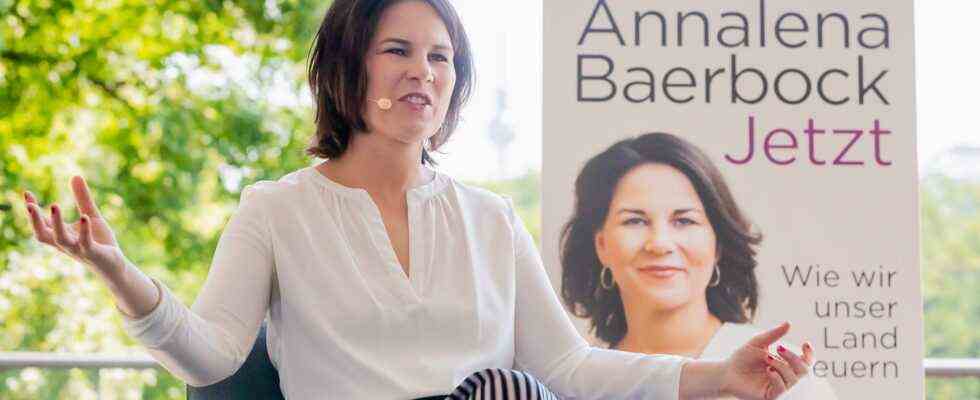analysis
Status: 07/10/2021 4:01 a.m.
So far, the federal election campaign has been a lot about people – and only little about content. But is that also why it is conducted more dirty than it used to be?
An analysis by Birgit Schmeitzner,
ARD capital studio
In Germany, “negative campaigning” – that is, the attempt to look better yourself by making your political opponent look bad – is primarily associated with the USA. This strategy is widespread there, also because only two candidates compete against each other.
The cognitive psychologist Christian Stöcker speaks of “tribal thinking”, a “those against us”, the political discourse is becoming increasingly brutal. In Germany, on the other hand, parties must always keep in mind that they may have to form a coalition after the election. According to Stöcker, this “inevitably has a civilizing effect”. But that does not mean that in this country there has never been and will never be fought without hard bandages.
Defamed Willy Brandt
In the 1960s, for example, Federal Chancellor Konrad Adenauer (CDU) and other Union politicians defamed the SPD challenger Willy Brandt. The Union interpreted the fact that he had given up his maiden name Frahm while fleeing the Nazis in exile and not accepted it again after the end of the war, as a lack of national feeling.
In later years, too, there were repeated personal attacks on political opponents. The psychologist Stöcker does not consider all too obvious dirty campaigns to be effective in winning over undecided voters. But what could work as a campaign: an uneasy feeling of awakening a diffuse distrust of other parties and their leaders.
Seehofer: Treat Baerbock with respect
In the past few weeks, Green Top candidate Annalena Baerbock has faced many allegations: inaccuracies in her résumé, additional income given afterwards, a book without references. CSU general secretary Markus Blume described them as “Schummel-Baerbock”. The outgoing Federal Interior Minister Horst Seehofer (CSU) thinks that a certain sharpness is part of the political debate. He told the “Süddeutsche Zeitung”, “These are the acid tests that everyone who wants to lead the country has to go through.” In conversation with the ARD capital studio but he also emphasized that he considered Baerbock suitable. You also have to “treat a competitor with respect”.
Support from the SPD
The top candidate of the SPD, Vice Chancellor Olaf Scholz, is of the opinion that “some things are not fair and just” when dealing with Baerbock. The former SPD leader Sigmar Gabriel advises the Green top candidate to see the criticism as a kind of “appreciation”. They are being “tested for their political shot resistance”. Gabriel accuses the media via Twitter of having “foam at the mouth” and this foam conceals the voyeurism of “finally seeing a woman fail who dares to do something”.
Greater attention to negatives
“Only bad news are good news,” they say. When something doesn’t work, goes wrong or problems arise, it attracts more attention than positive reports. With Baerbock, however, it is noticeable that it sometimes has to meet stricter standards than its competitors for the Chancellery. Her book makes more waves than, for example, the undecided attitude of CDU top candidate Laschet to Thuringian direct candidate Maaßen or the gaps in memory of SPD politician Olaf Scholz when coming to terms with the cum-ex frauds.
Social media: new tone, different dynamics
On social media, criticism of Baerbock often slips into misogyny. In general, the tone is rough on Facebook and Co. According to Stöcker, who researches the subject of “digital communication”, accounts from the “far right spectrum” with content that “excites people insanely” are very successful. People with politically extreme views – right and left – are also more active in social media. Stöcker concludes that opinion on social media is often not representative, but is shaped by more extreme social groups.
Politics as a negative role model
Posts that have a new quality also appear on party accounts. For example a photo of Baerbock, in which a thought bubble with three piles of excrement is inserted – published on Instagram by the CSU. Stöcker speaks of a risk to society if parties brutalize their language, and he cites the USA as an example. There the political opponent is meanwhile being attacked “ruthlessly and meanwhile also under false pretenses”. This also exacerbates the way in which there is discussion in everyday life of how supporters of the other camp are defamed and insulted.
The voluntary commitments of the parties
In Germany, the AfD is targeting polarization, so it follows the American model. The other parties are holding back, emphasizing that they want a fair election campaign. The Greens have given themselves a fairness obligation, but not everyone will keep it at all times. The Deputy Green parliamentary group leader Oliver Krischer, for example, accused Laschet of pursuing a policy against the expansion of wind energy. Such a policy “costs all over the world […] People’s Life “. CDU General Secretary Paul Ziemiak protested, describing this accusation as” irresponsible “.
Steinmeier’s concern about a “mud fight”
A look back shows that dirty election campaigns are not a new phenomenon in Germany. It used to be, it is there today. What is striking: The disinformation campaigns that have been carried out in the USA in recent years do not (yet?) Exist on this scale in this country.
However, the tone of voice has changed, and campaigns can boil up very quickly via social media, giving them more momentum. Federal President Frank-Walter Steinmeier recently spoke of concerns that the election campaign could turn into a “mud battle”. He appealed to the parties to “let moderation and reason rule”, which is a prerequisite for a functioning democracy.

